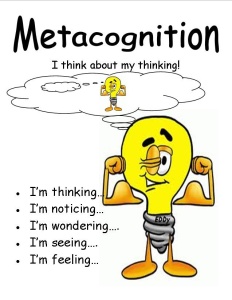P49: In the mind there is no volition, or affirmation and negation, except that which the idea involves insofar as it is an idea.
Dem.: In the mind (by P48) there is no volition, or affirmation and negation, except that which the idea involves insofar as it is an idea. (Spinoza, 1994a, p. 63)
Learning is not a “free” choice in a Spinozist universe, it is the inevitable product of an infinite numbers of causal factors. Learning is, in fact, about understanding the ways in which ideas and bodies are the products of an infinitely complex web of cause and effect. Learning is about learning we are not free. Paradoxically, this knowledge sets us free. Spinoza argues that this knowledge that we are “determined” creatures teaches us four lessons. These are:
Lesson one
That when we “act only from God’s command…the more we understand God. This doctrine, then, in addition to giving us complete peace of mind, also teachers us wherein our greatest happiness, or blessedness, consists: namely, in the knowledge of God alone, by which we are led to do only those things which love and morality advise.” (pp. 67, P49 Schol. A). In other words, the learner needs to “act” in accordance with those things which he/she loves doing and their conscience guides to do. This for Spinoza is the intrinsic reward for learning. He condemns those people who do things to be “honoured by God with the greatest rewards for their virtue and best actions”. Thus, we can see a Spinozist pedagogy would possibly not involve reward and punishment systems.
Lesson Two
Our reason will lead us to have an adequate understanding of those things that are “not in our power, that is, concerning things which do not follow from our nature” and “we must expect and bear calmly both good fortune and bad” (p. 68). The Spinozist learner is not full of regrets and resentment about what he/she is not, about the misfortunes in their life. A Spinozist pedagogy has little room for bad faith, ressentiment and bad conscience. However, it’s important to note that ‘Bearing things calmly’ is an outcome of reason and should not be understood as an affect to be encouraged. Spinoza says we do not bear things calmly from affect, but from reason not from unmanly compassion, partiality, or superstition, but from the guidance of reason. Reasoning about something may have the same outcome as ‘bearing calmly’, but bearing calmly might have its roots in superstition, as in the Christian doctrine (love thy neighbour etc.) And Spinoza, as we saw in the above quote, wants to move away from this and make us understand why we should bear things calmly–understanding of necessity–and not make a normative moral claim that we ought to bear things calmly. In this sense, Spinoza would not encourage ‘bearing calmly’ as an affect; instead ‘bearing calmly’ is the product of reason.
Lesson Three
It means that the reason will make view each other in a benevolent fashion not that we must view each other calmly. There are no unreasoned “commands” in a Spinozist pedagogy, rather imperatives which are to be derived from thinking about why things happen and why we should behave in a particular way; ultimately, we have to understand , in the spirit of equality, because we are all “determined creatures” who lead “necessary existences”. Spinoza writes:
It teaches us to hate no one, to disesteem no one, to mock no one, to be angry at no one, to envy no one; and also insofar as it teaches that each of us should be content with his own things, and should be helpful to his neighbour, not from unmanly compassion, partiality, or superstition, but from the guidance of reason, as the time and occasion demand.
Our reason will lead us to be aware of the individual and unique situations we are in, and will necessarily avoid blaming people or sole causes for things that go wrong.
Lesson Four
Finally, the fact that we are aware that we are “determined creatures” does not mean that we are not “free” to do things which we feel are “best”, it means that we should be aware of the social forces which shape us, and try to contribute to the social good so that society can become better for everyone. Spinoza writes: “Finally, this doctrine also contributes, to no small extent, to the common society insofar as it teaches how citizens are to be governed and led, not so that they may be slaves, but that they may do freely the things which are best”.#

This diagram attempts to show the ways in which the learner is shaped by God or Nature. God’s command is the overall set in which the learner exists. Once the learner is aware that everything that happens to him/her is necessary, he/she can learn through reason to “bear calmly” both the good and the bad in their life; this adequate idea necessarily means that he/she does what is best. Once the learner is “doing what is best” they are “acting freely” insofar they are acting in accordance with the command of God, who is the only “substance” who is free and is the only “substance” who ultimately acts in the common good. In other words, the learner who has an adequate idea of God must necessarily act freely insofar as he/she is “in God”. This is a “collective freedom” and not at all similar to Christian or neo-liberal conceptions of freedom.
Journey into Joy
Do you agree? Do you think being aware that we are “determined” creatures leads to a state of mind where we bear things calmly, and thus achieve a sort of “freedom”? Or is contradictory?








